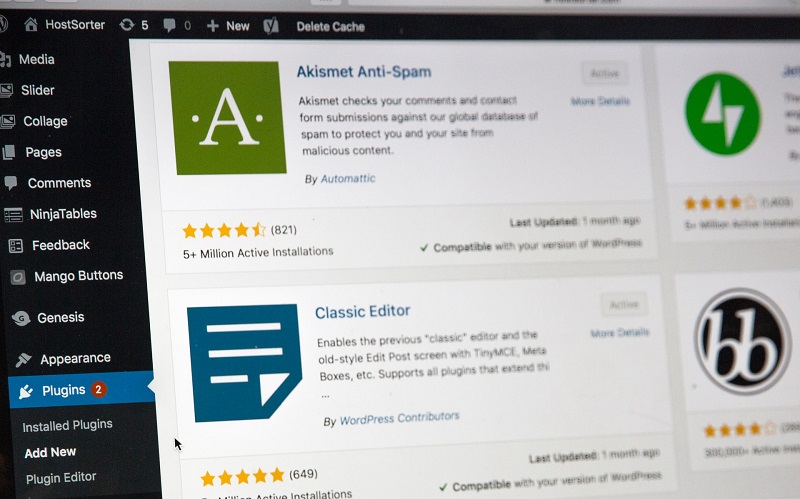Techssocial | In this day and age, the Internet has rendered the world a global village. Everyone has access to any public information, and contact is instantaneous and practically free. Most institutions, organizations, companies, and individuals have an Internet presence. This kind of technological freedom has its flip sides, however. We all know of malicious hackers and people who want to take advantage of well-intentioned websites and platforms. With that in mind, cybersecurity has become a multi-billion global industry in its own right. And WordPress website security is precisely what we’ll tackle throughout this article.
Table of Contents
WordPress Website Security
First of all, we should dispel one hard-entrenched myth: security is about more than coming up with an impregnable system. The reality is that there is no such thing, as either analog or digital security. You can’t create a system that no one can go through. However, you can reduce the risk of someone tampering with your website to the absolute minimum.
This kind of risk reduction is what you’ll do to harden your WordPress website security. And make no mistake, WordPress security is pretty much synonymous with website security these days. More than 30% of all websites are created and maintained via WordPress.
Seeing as WordPress is by far the most widely used content management system (CMS), improving your WP website security is a priority. After all, the system’s popularity means that there are most hacking methods developed for that platform. Don’t worry, though — it doesn’t take a lot of work to increase a WordPress site’s security massively. And we’ll give you a couple of essential tips right here!
Word Of The Day – Updating
When a WordPress website is hacked, the owners and managers always want to know where the exploit came from and how someone hacked them. In the majority of cases, the culprit is clear — outdated website components. We’re talking about the core, themes, and plugins. If you don’t update these regularly, malicious intruders can trace their files and target you.
Updating all of your WordPress plugins is crucial if you want to harden your WordPress website security. Luckily, you can find plenty of plugin managers online. These are mainly automated software solutions that allow you to check for updates for installed plugins automatically.
Trusted Plugins
Speaking of installed plugins, you shouldn’t just install any plugin that you come across. Not only would this create unneeded clutter, but it’s not a good idea from a cybersecurity perspective either. Only use themes and plugins that are trustworthy and reputable. If you’re unsure of what these are, check out the ones from the “Featured” category on WordPress.org.

Before you install a plugin, see how others have rated and reviewed it. That way, you’ll be able to tell if other people have encountered any deal-breaking bugs or even security breaches.
Also, see if the theme or plugin that you want to install has recently been updated. If you find that the publishers haven’t updated it in years, we advise finding something more recent. As we’ve mentioned before, such outdated plugins are precisely what hackers are looking for.
Theme And Plugin Removal
The effort to harden your WordPress website security isn’t just about installing the right plugins; the flip side of that coin is also getting rid of themes and plugins you aren’t using anymore. Over time, you’ll find that proper maintenance of a WordPress website includes decluttering.
When you feel like you’ve gathered many plugins and themes, take some time to remove the rarely used and unused ones. That process will help optimize your website and make it faster. And more importantly for our current topic, removing stagnant plugins also means dispensing with security vulnerabilities.

Use Security Add-Ons
One of the beauties of WordPress is its abundance of add-ons. The reason why you can get caught up in too many plugins is that there’s a vast amount of them. Regardless of what you want to do with your website or what kind of functionality you wish to add, there’s probably a plugin for that out there.
With that in mind, there are also plugins for security purposes that you might find useful. If you really want to take a proactive stance against cybercrime, check out and install some of the more popular ones.
Regular Backups
One of the first things we’ve mentioned here was that there is no such thing as a 100% secure website. Even if you do everything right and take every proper precaution, there’s still something that may go awry or an exploit you might have missed.
Considering that, it’s better to be safe than sorry. Make sure that you perform regular backups of your website as per WordPress instructions or with the help of a plugin. That way, even a malicious attack on a website will not mean any lost work or content.
Strong Passwords
From time to time, we all use weak passwords on certain platforms and websites. After all, these are just a breeze to remember. However, if you use a password that’s easily hackable, like one that contains publicly available personal information such as your birthday, your website will be far more vulnerable to attacks.
That’s why you should use password generators to harden your WordPress website security. These tools are designed to create the strongest and most random passwords. And we’re not just talking about your WP admin account. Ideally, your other website users should have tough passwords as well.
Rebecca Doherty is an SEO expert that writes content for many different blogs. Her portfolio includes content written for wpfullcare.com and other WordPress and SEO-related blogs. She currently resides in Seattle.
